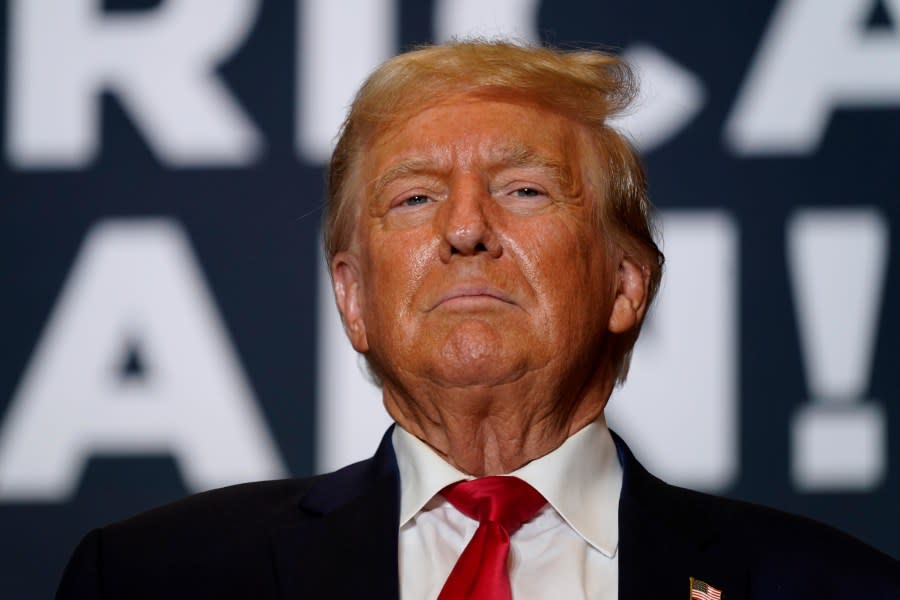The Hill – Opinion
Trump promised to be a dictator on Day 1: Here’s why the Insurrection Act blocks him
Julien Berman and Laura Dickinson – November 19, 2024

Could President-elect Donald Trump use the military within the U.S. to suppress protests on college campuses, patrol the southern border, and conduct mass deportations? By invoking the Insurrection Act — a little-known law that grants the president sweeping authority to deploy the military on American soil — he plans to do just that.
The Posse Comitatus Act generally makes it a crime for the military to engage in domestic law enforcement. But the Insurrection Act provides a crucial exception to this rule, giving the president seemingly broad authority to deploy military forces on American soil. Historically, it has been invoked sparingly and responsibly — only 30 times in the 230 years since its inception. Most famously, the act enabled Presidents Dwight D. Eisenhower, John F. Kennedy and Lyndon Johnson to desegregate schools in the South and protect civil rights marchers to enforce court orders over the objection of state officials.
But in a moment when our democracy hangs by a thread, when the president-elect has openly declared potentially authoritarian ambitions, it could become the legal mechanism for Trump (or any president) to transform our constitutional democracy into a military state.
In 2020, Trump wanted to deploy military forces to quash the Black Lives Matter protests, but was convinced not to by advisers such as Attorney General William Barr and Gen. Mark Milley. In his second term, with Trump pledging to purge independent voices and install loyalists across government, there may be no one left to say no.
The Insurrection Act contains three triggers for military deployment. The first is relatively uncontroversial because it requires a state to explicitly request military assistance to suppress an insurrection. But the other two triggers appear to grant the president virtually unchecked power to deploy troops without state consent — or even against state wishes.
The language in these other two sections of the law is breathtakingly broad. One section seems to allow the president to deploy troops whenever “unlawful obstructions” make it “impractical” to enforce federal law. The other goes further still, purporting to authorize the use of military force to suppress any “domestic violence, unlawful combination, or conspiracy” that “opposes or obstructs” federal law enforcement.
Even more alarming, in addition to allowing the deployment of regular troops and federalizing the National Guard, the act permits the president to deputize “private militias.” In theory, Trump could grant federal law enforcement authority to the extremist groups who stormed the Capitol on Jan. 6, 2021 or to militant organizations like the Proud Boys.
Our military is primarily trained for overseas combat, not domestic law enforcement, which requires different rules of engagement and careful protection of constitutional rights. And coordination between federal troops, local police and state officials becomes a logistical nightmare.
But all is not yet lost.
The Biden administration and Congress have roughly two months to reform this dangerous law before Trump returns to office. Experts across the political spectrum have proposed crucial reforms. Congress could explicitly narrow the specific substantive circumstances in which the act can be invoked, eliminate the private militia provisions, or add procedural checks on the use of the act, for example by requiring congressional approval or judicial review.
But even without congressional reform, executive branch lawyers in the Justice Department’s Office of Legal Counsel can make it clear that the current language in the Insurrection Act is not as broad as it may seem. Indeed, OLC has long maintained that the act’s sweeping language must be read narrowly in conjunction with other specific constitutional provisions and historical practice. Now, faced with explicit threats to weaponize the act, OLC should forcefully clarify these constitutional constraints, while providing needed guidance to judges should they be required to interpret the scope of the act.
First, OLC should emphasize that Congress enacted much of the act’s broad language immediately after the Civil War pursuant to its authority under the 14th Amendment. Because the 14th Amendment requires state action, the Insurrection Act should too, preventing the president from unilaterally deploying troops unless state authorities are either actively denying federal rights or completely powerless to protect them.
Second, OLC should establish a high bar for military deployment not tied to enforcing specific court orders. Both the Supremacy Clause and Article IV, Section 4 of the Constitution suggest that the president must demonstrate a genuine collapse of state and local authority, and that the statute should only be used as a last resort.
Under this constitutional framework, Trump’s threats to deploy troops against protesters or undocumented immigrants are clearly illegitimate. They involve neither state violations of constitutional rights nor a breakdown of civil authority.
The framers of our Constitution were deeply skeptical of standing armies and military involvement in civilian affairs. They understood that turning troops against citizens was a hallmark of tyranny. It is deeply embedded in our Constitution and tradition that, outside of invasion or rebellion, civilian law enforcement — not soldiers — would maintain domestic order.
Our military exists primarily to protect the nation from foreign threats, not to serve as any president’s personal enforcement army against the American people. Now, as we face four more years of a president who has shown contempt for democratic norms and institutional restraints, we must use every legal tool available to prevent the abuse of this extraordinary power.
Julien Berman is a Harvard undergraduate and op-eds editor of The Harvard Crimson. Laura Dickinson is the Lyle T. Alverson Professor of Law at The George Washington University Law School.
